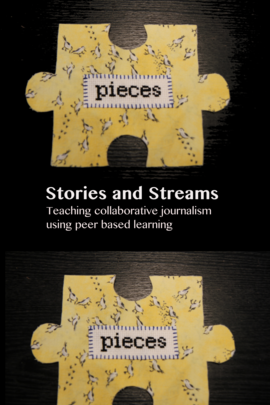Do you have students or classes who want to do something investigative but lack support or ideas?
Next week students in Birmingham, Portsmouth and Strathclyde will be starting new investigations focused on education and the arts. Their focus will be local, but by exchanging notes the investigations should be quicker, easier, and potentially bigger.
They’ll be supported by new editors at Help Me Investigate Education who have put together the list of potential investigations, along with mentors from the media industry.
If that sounds like something useful – or you have an investigation you’d like them to help you with – contact me at paul@helpmeinvestigate.com
PS: Further supporting this is a free resource on teaching collaborative journalism, and an accompanying pack for students.

